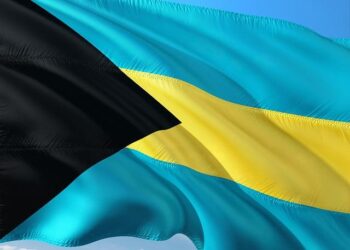Uruguay has been named Latin America and the CaribbeanтАЩs most prosperous country in 2018. According to a study by the Boston Consulting Group тАУ the Sustainable Economic Development Assessment тАУ Uruguay is the best at turning economic prosperity into citizen wellbeing.
Placing 41st out of 152 in the ranking, Uruguay is the highest Latin American country on the list topped by Norway. The Sustainable Economic Development Assessment (SEDA) measures wellbeing in ten dimensions split across three categories; economics, investments and sustainability.┬а
For the economic category, each country is given a score based on three factors. Firstly GDP per-capita тАУ the usual basis to determine a countryтАЩs prosperity тАУ is included, followed by economic stability (rate of inflation versus GDP volatility) and employment statistics (rate of unemployment/underemployment).┬а
Uruguay┬аhas always been a relatively prosperous nation in the scheme of the Americas. Driven largely by beef, wool, crops and dairy products, the countryтАЩs economy has been growing due to increasingly trade-focused governments since the dictatorship during the 1970s. Although Uruguay felt a brief period of economic turbulence at the beginning of the century, based on instability in Argentina and Brazil, the country has since returned to a system of shared wealth.┬а
Investments is also split across three categories in the SEDA ranking; health, education and infrastructure. A high level of health care can be attributed to both access to healthcare as well as healthcare outcomes. Education is measured across the same duel success factors whilst the infrastructure dimension focuses on basics including power and water to information and communications technology.
Having quintupled its GDP since 2003 after a recession wiped $13 billion off the national income, Uruguay has now reached a nominal GDP of $53 billion. Spread across its three and a half million people, this equates to roughly $24,000 per-capita. Whilst Uruguay is not the most prosperous in terms of GDP in Latin America or the Caribbean (with those honours going to Panama and Trinidad & Tobago respectively), the wealth has been shared across the entire society.
This is the basis of the investments category and is also the heart of the SEDA ranking. The report states that, тАШa countryтАЩs wealth has a pervasive impact on many of the factors that contribute to wellbeing. We focus therefore on the performance of countries in converting the wealth they do have into wellbeing.тАЭ
The sustainability category combines the most criterion and is perhaps what sets the consulting firmтАЩs SEDA report aside from other wealth and prosperity rankings. Spread across four separate dimensions including equality, civil society, governance and environment, when combined, these dimensions cover some of the basic civil liberties which are constitutionally enshrined in the majority of prosperous nations.
Uruguay has historically had a strong framework of democratic governance. The country has upheld its commitments to human rights whilst furthering its civil inclusion agenda тАУ gender equality is a factor of the civil society dimension тАУ and has also implemented a strong regime of civil liberties.┬а
In contrast to the rest of Latin America, UruguayтАЩs score of 64.2 was only closely met by Chile, which scored 62.6. Several Caribbean island nations also scored highly in the index, including Barbados, The Bahamas and Trinidad & Tobago, while for mainland Central America, Costa Rica had the highest SEDA score with 58.9.
Overall, UruguayтАЩs score was higher represented than the majority of Latin America and was situated in the upper-middle quartile of the ranking. Surrounded by Kuwait, Bahrain, Greece and Saudi Arabia, Uruguay is proof in Latin America that countries with similar levels of wealth can have different levels of wellbeing.
When measured against the gross national income, a countryтАЩs SEDA score can prove that a lesser economy can provide a better wellbeing for its citizens through infrastructure and sustainable economic investments. This also, in turn, affects a countryтАЩs ability to respond to economic crisis and promotes a virtuous cycle of economic growth.
The authors of the Boston Consulting Group┬аreport state that, тАЬOur findings mean that countries that focus on enhancing wellbeing not only raise the standard of living of their citizens but also set their country up for stronger and more resilient economic growth.тАЭ┬а
тАЬCountries can тАУ and should тАУ aim to achieve the twin objectives of sustainable economic growth and improved well-being. SEDA can be a valuable tool as governments undertake this journey, shedding light on the impact of past policy decisions and informing strategies for the future,тАЭ the firm concludes.
Source link : https://www.consultancy.lat/news/amp/526/uruguay-is-most-prosperous-latin-american-country
Author :
Publish date : 2018-08-06 03:00:00
Copyright for syndicated content belongs to the linked Source.











